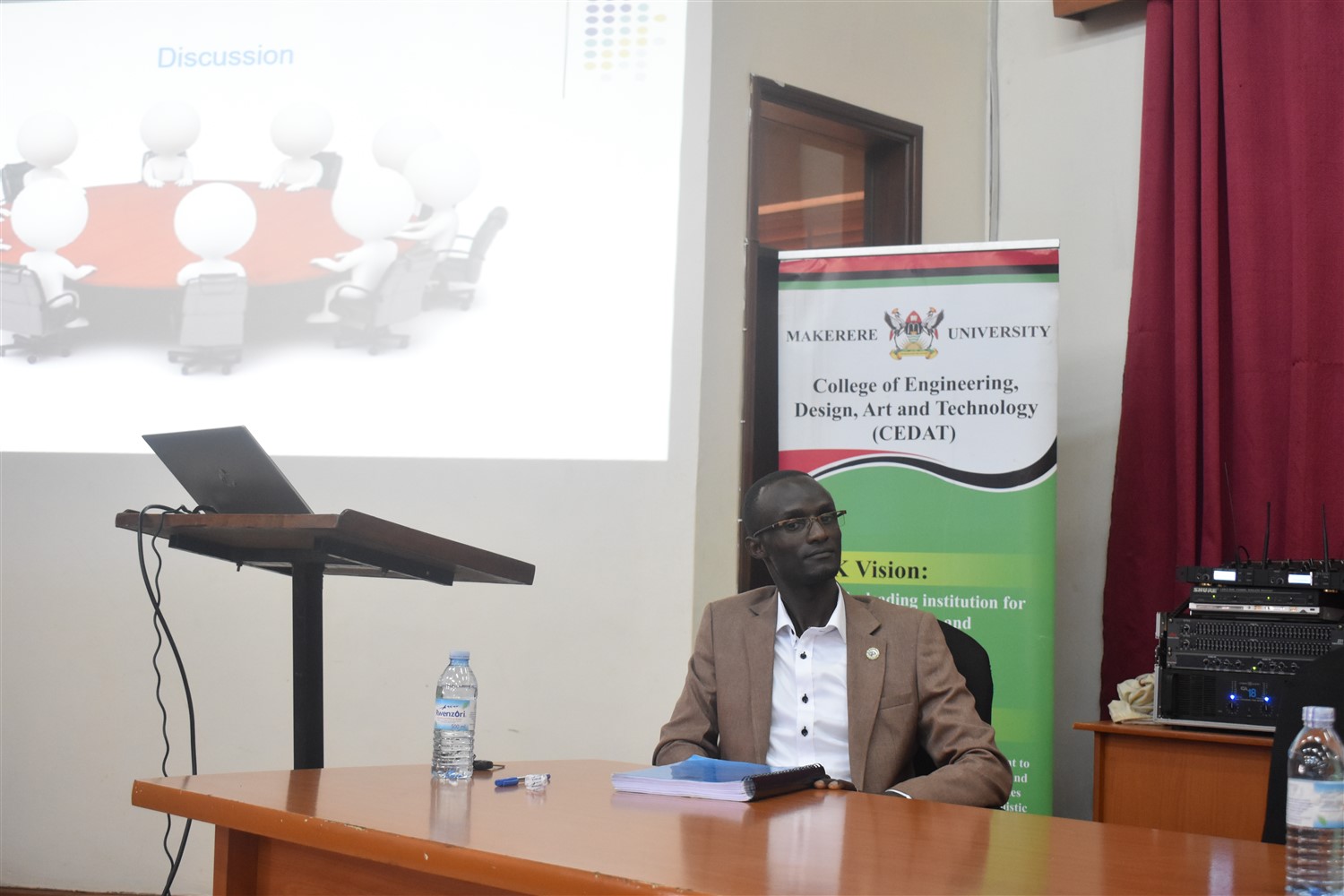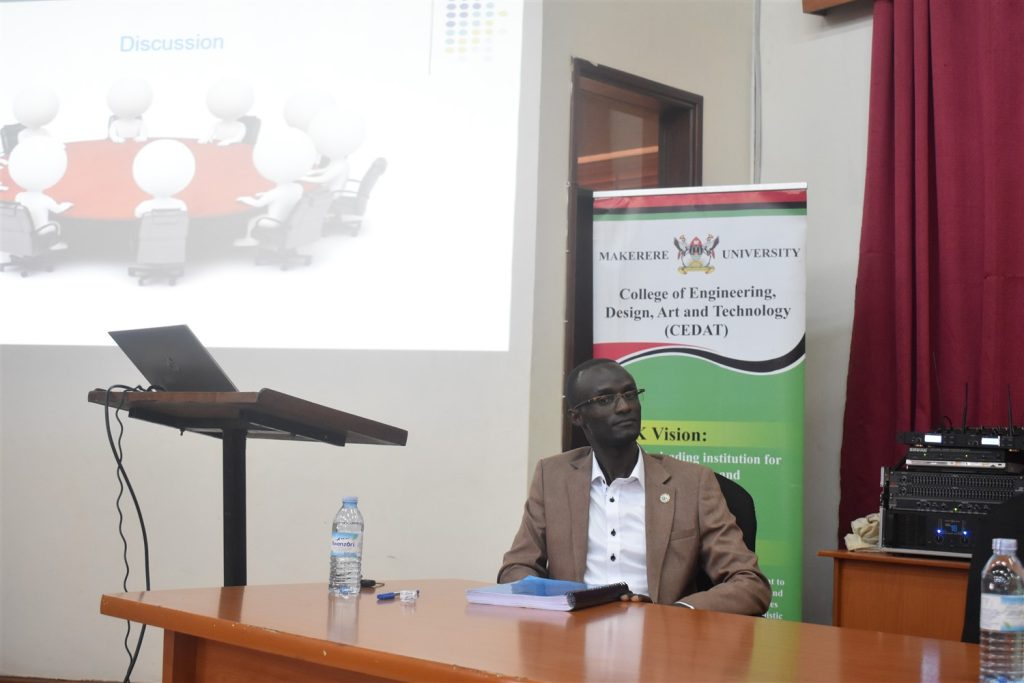
Thesis during a public Viva Voce held on the CEDAT Conference Hall on Tuesday 20th June 2023.
A number of staff congratulated the candidate for hiss great work and according to the Principal CEDAT, Prof. Henry Alinaitwe, it was characterized with great practical recommendations with four publications in good journals.
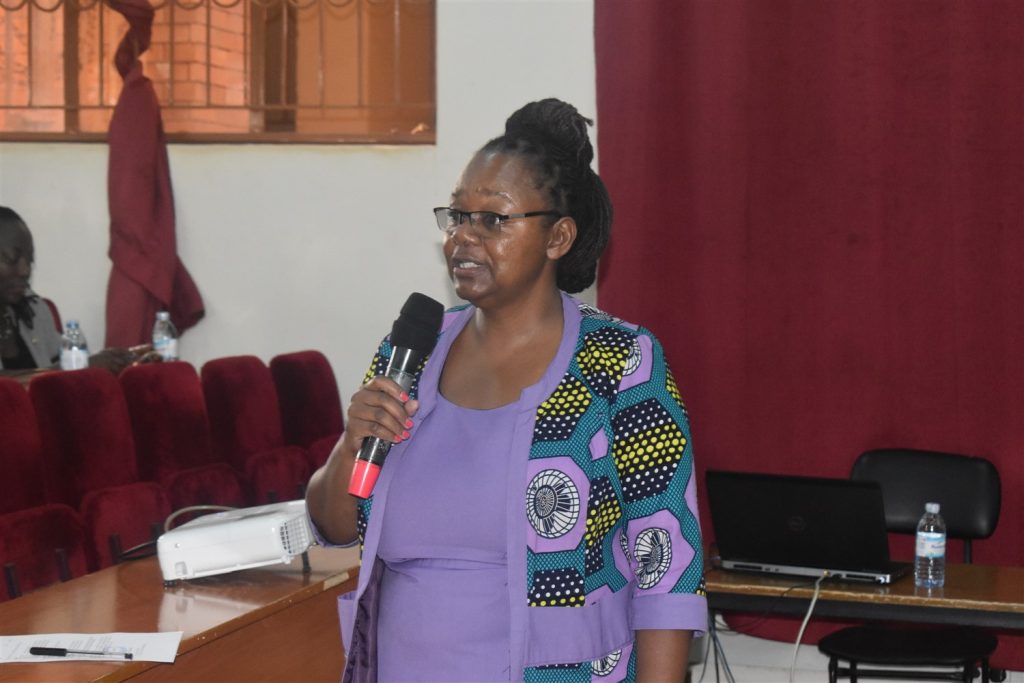
The Dean, School of Engineering, Assoc. Prof. Dorothy Okello who presided over the public defense session extended heartfelt congratulations to the candidate on her behalf and that of the School of engineering, where the candidate belongs.
‘you have made us proud as a unit and your work is a manifestation of the great efforts you put to teaching and other assignments allotted to you at the department’, she said noting that Tumusiime Edmund did not go for a study leave but concurrently undertook studies and other assignments at work.
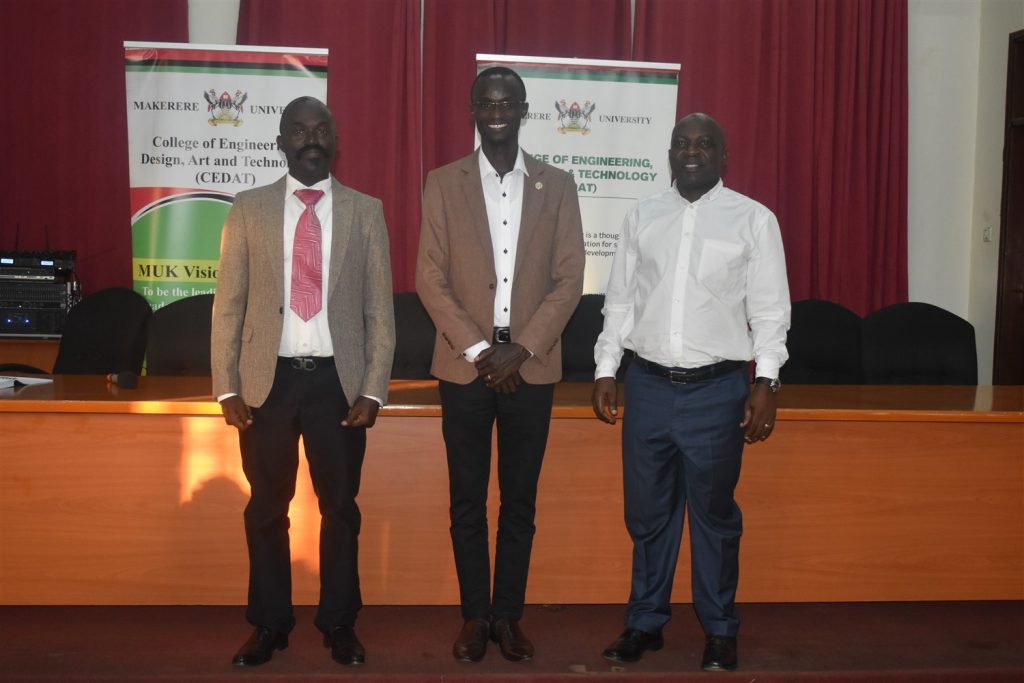
Under the supervision of Prof. John Baptist Kirabira, the head Mechanical Department and Assoc. Prof. Wilson Babu Musinguzi from Busitema University, Dr. Edmund Tumusiime defended his thesis “Development of an Integrated Energy Recovery System for Productive Biogas Applications in Uganda”.
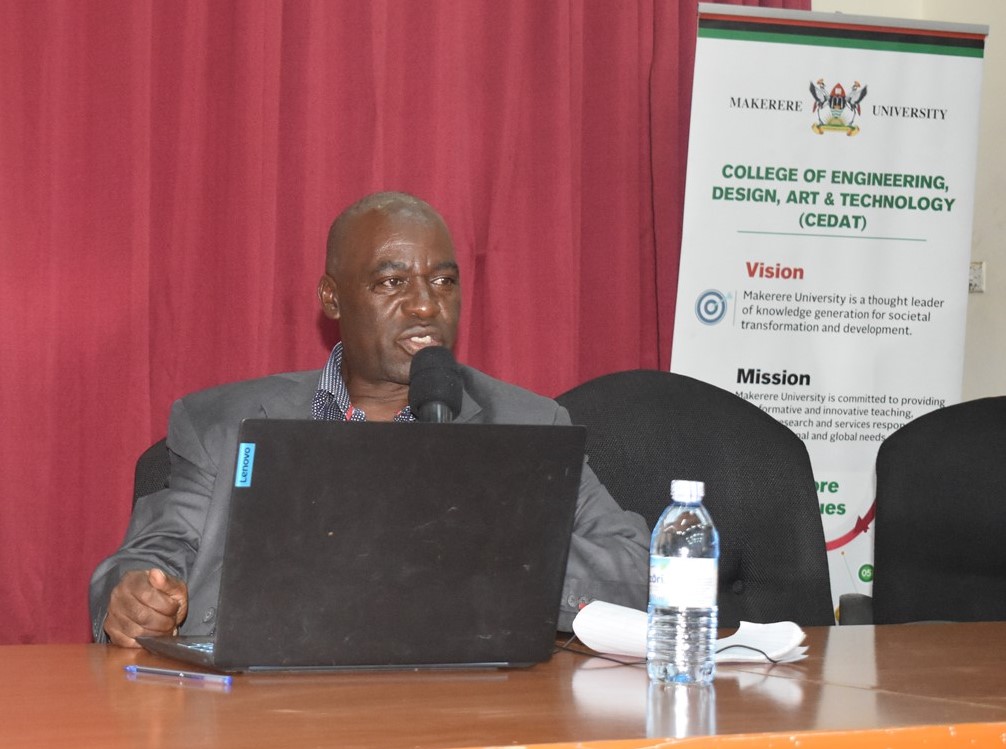
Prof. Kant Kanyarusoke, Faculty of engineering, Busitema University was the opponent during the defense. He faced a team of panelists that included Dr. Dorothy Okello, Dean School of Engineering, Dr. Ahmada Zziwa, Assoc. Prof. Dept. of Biosystem Engineering, CAES, Dr. Isa Kabenge, Assoc. Prof. Department of Biosystem Engineering, CAES, Dr. Al-Mas Ssendegeya, Lecturer, Faculty of Engineering, Kyambogo University and Dr. Robinah Kulabako, Depart. Of Civil and Environmental Engineering, CEDAT.
The candidate Dr. Edmund Tumusiime extended his appreciation to all parties that enabled him undertake his study successfully. He specifically pointed out Prof. John Baptist Kirabira for his input through a review of his synopsis and ideas shared.
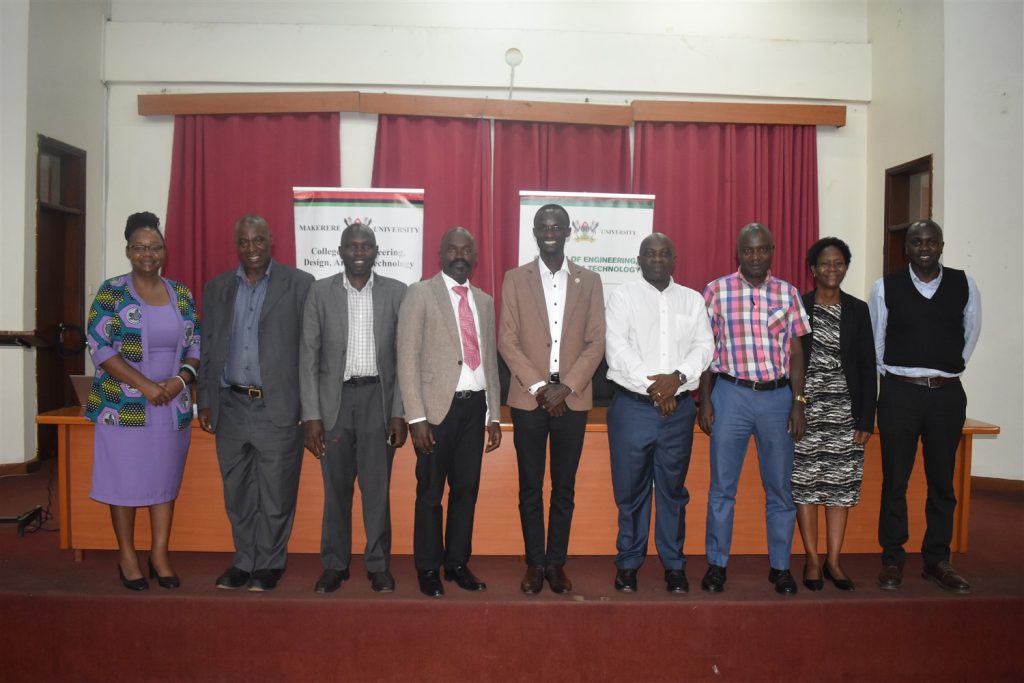
Abstract
The application of biogas as a renewable energy source continues to face competition from conventional energy sources, which are readily available and seemingly cheap. In addition, biogas system deployments in Uganda face challenges related to sustainability of biogas production, which has led to massive dis-adoption in recent years. These systems have failed to utilize alternatives during scarcity of primary feedstock due to lack of technical data for energy recovery, which could be linked to insufficient R&D in the biogas sector. This thesis presents a full account of a study that was done to optimize biogas production and system long-life performance for productive applications. The aim was to develop and evaluate an optimal integrated system for energy recovery from organic wastes as an enabler to system sustainability. An assessment of performance of productive biogas systems was done, aiming to highlight key success factors for system sustainability that could influence policy for a better future of Uganda’s biogas sector. This was followed by an assessment of selected feedstocks for sustainable biogas generation, aiming to develop optimal substrate mixing ratios to augment digester organic loading for enhanced biogas yield. This was done through characterization of feedstocks and mathematical modelling of the required substrate moisture for optimal biogas recovery. Results show that characteristics of feedstocks vary widely according to source and type with unmatched substrate mixing ratios.
Development and piloting of an integrated energy recovery system then followed, with intent to optimize, through monitoring and control, the key parameter that influence biogas and methane yield. Results show that the developed integrated system is about 33% more efficient than the conventional one, allows alteration of feedstocks, and can be deployed to replace conventional energy usage for productive applications. For instance, a poultry farm with 10,000 commercial layers may have its energy needs be met 100% by the proposed system with a pay-back period of 4.5 years for deep litter system and 3.7 years for battery cage system. Overall, the developed system revealed performance parameters desired for productive biogas applications, outmatching the relatively high initial investment required for its deployment due to system long lifespan. However, there is need for a change in policy to strengthen incentives in support for system acquisition. This, in addition to tradable renewable certificates, could go a long way in encouraging investment in biogas energy systems and thus contribute to energy transition for Uganda and beyond.
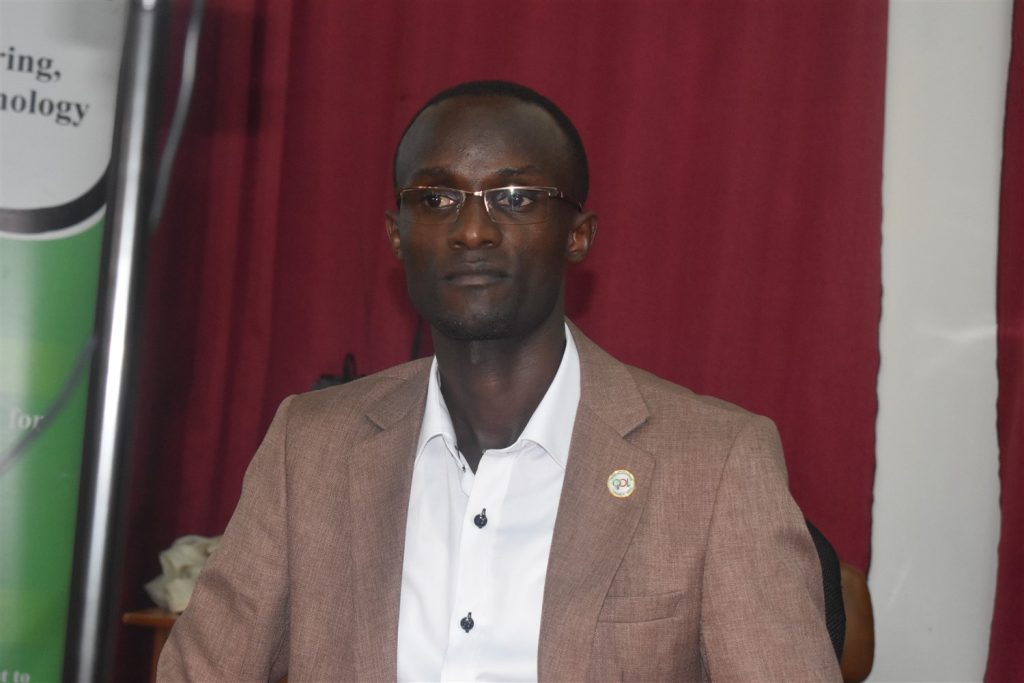
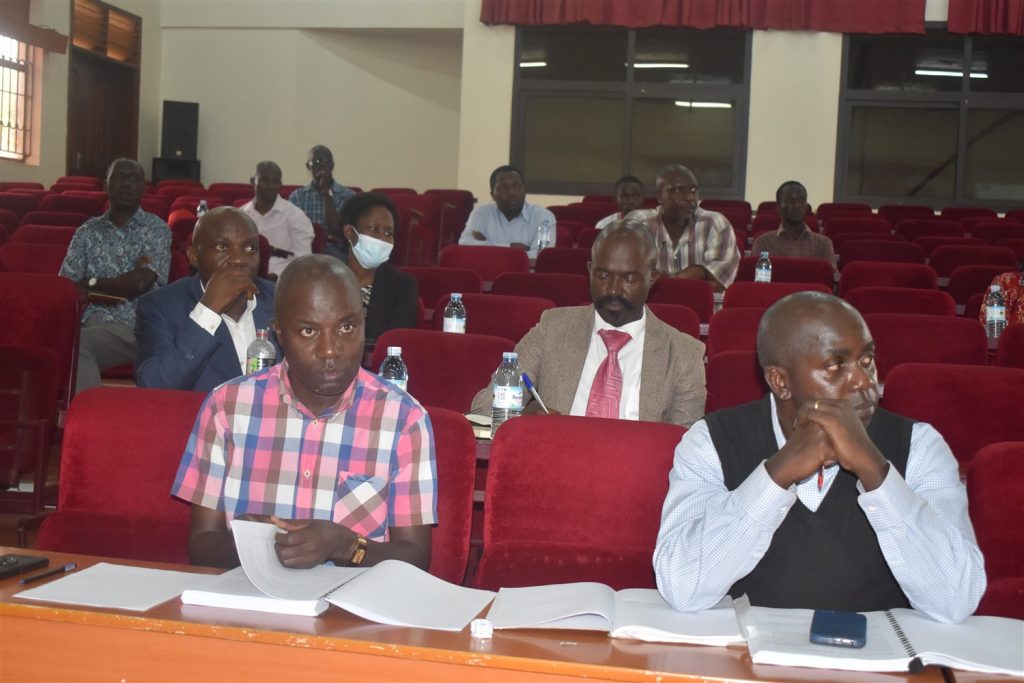
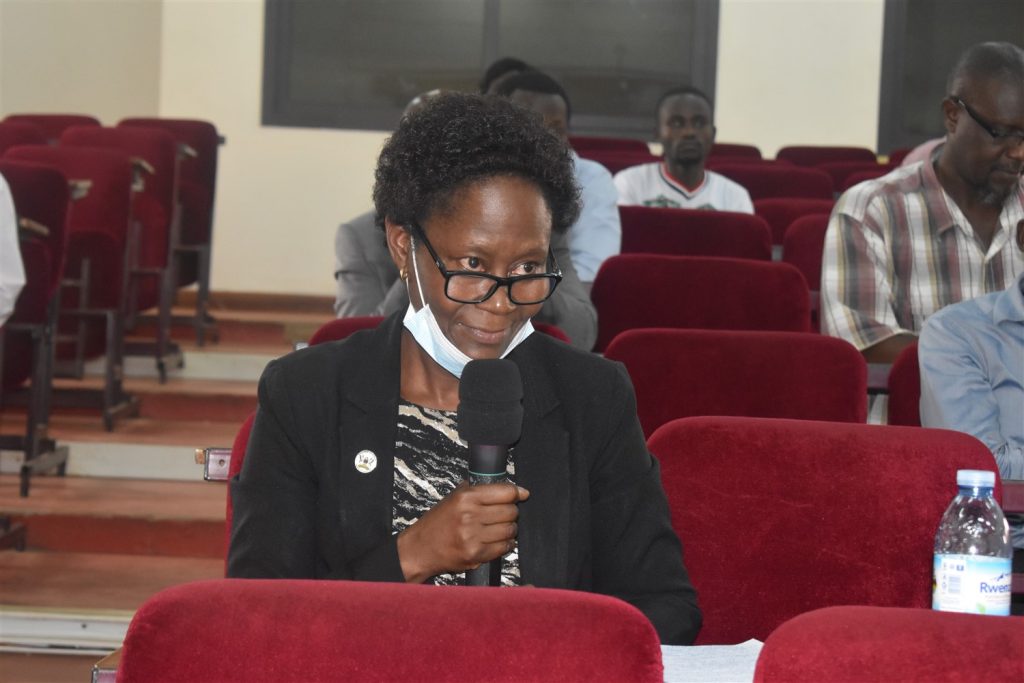
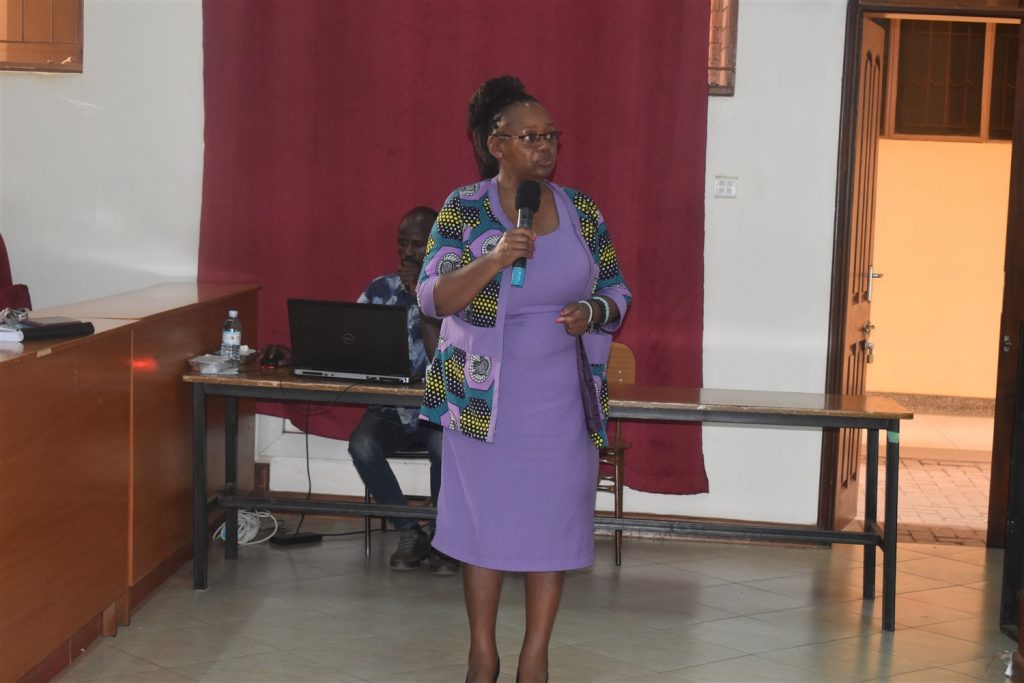
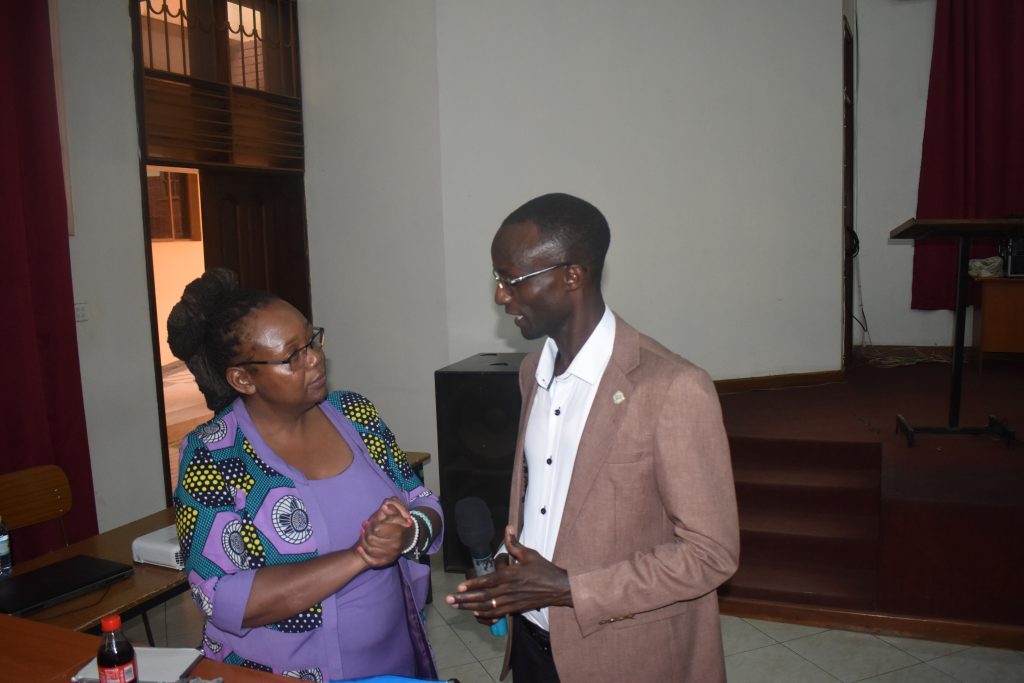
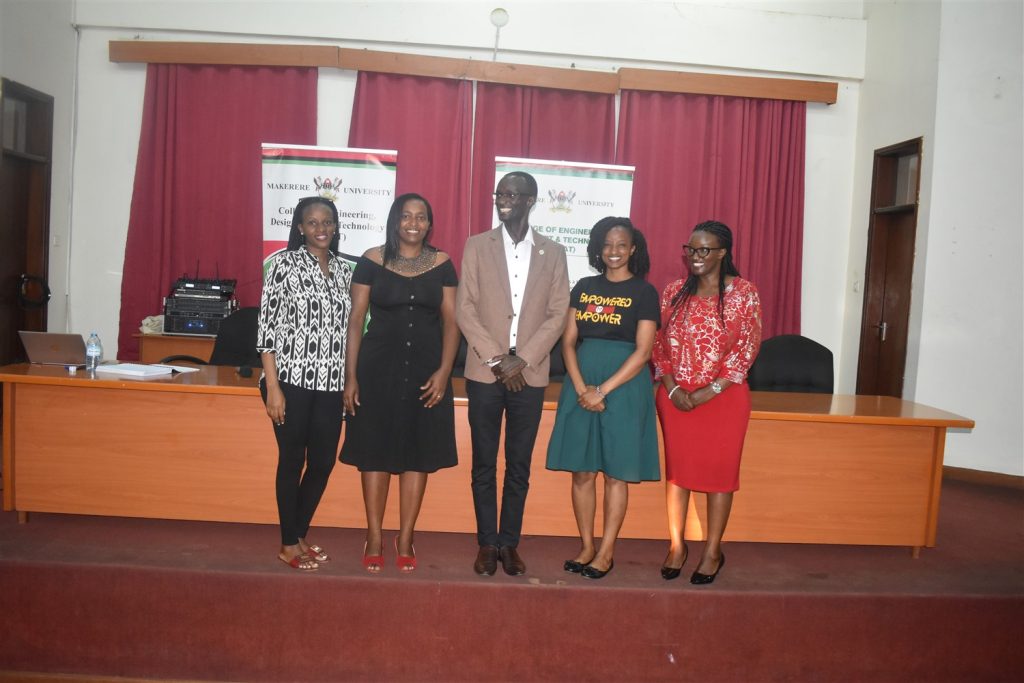
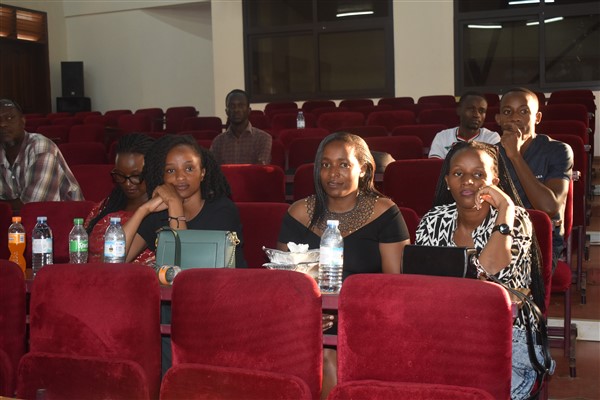
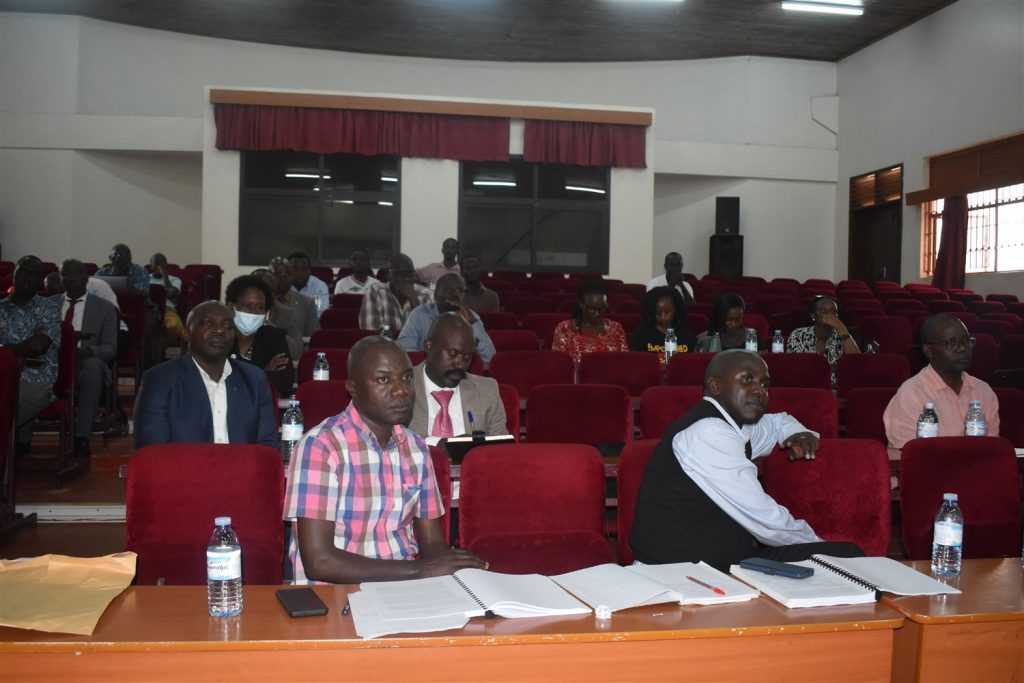
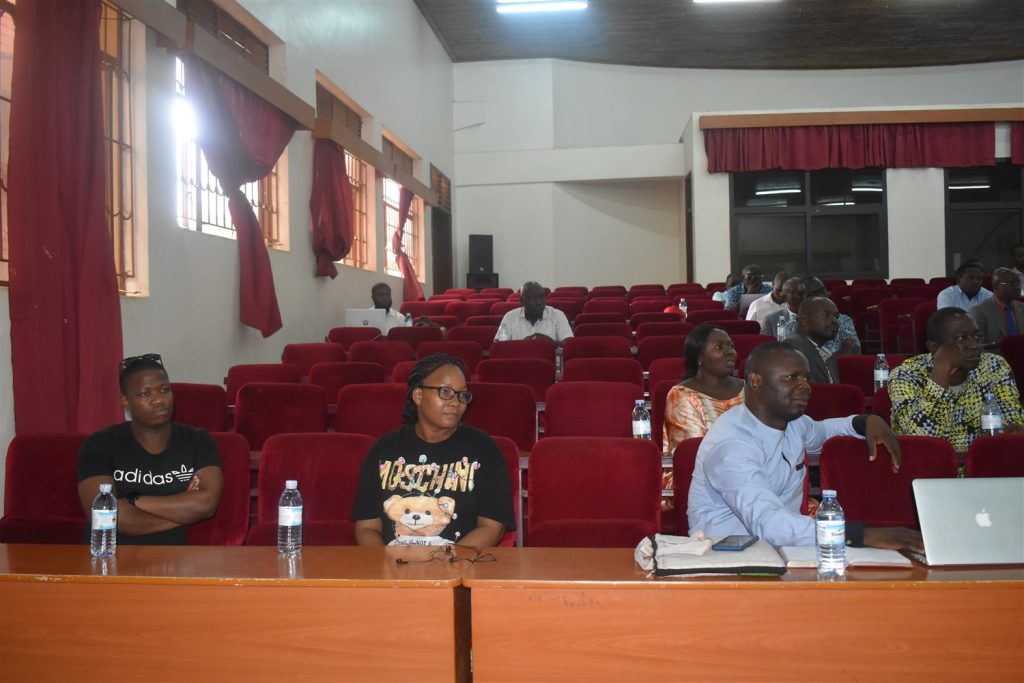
Written by Musinguzi Harriet, Principal Communication Officer, CEDAT.
Posted by Isemaghendera Alex, Web Administrator, CEDAT

